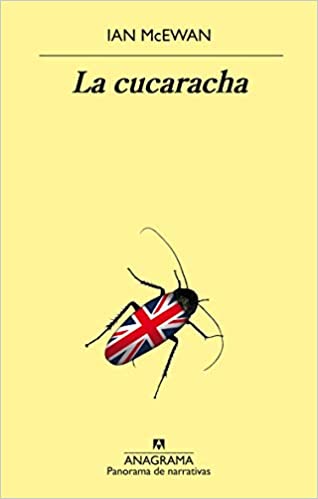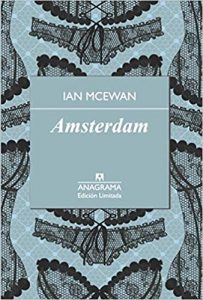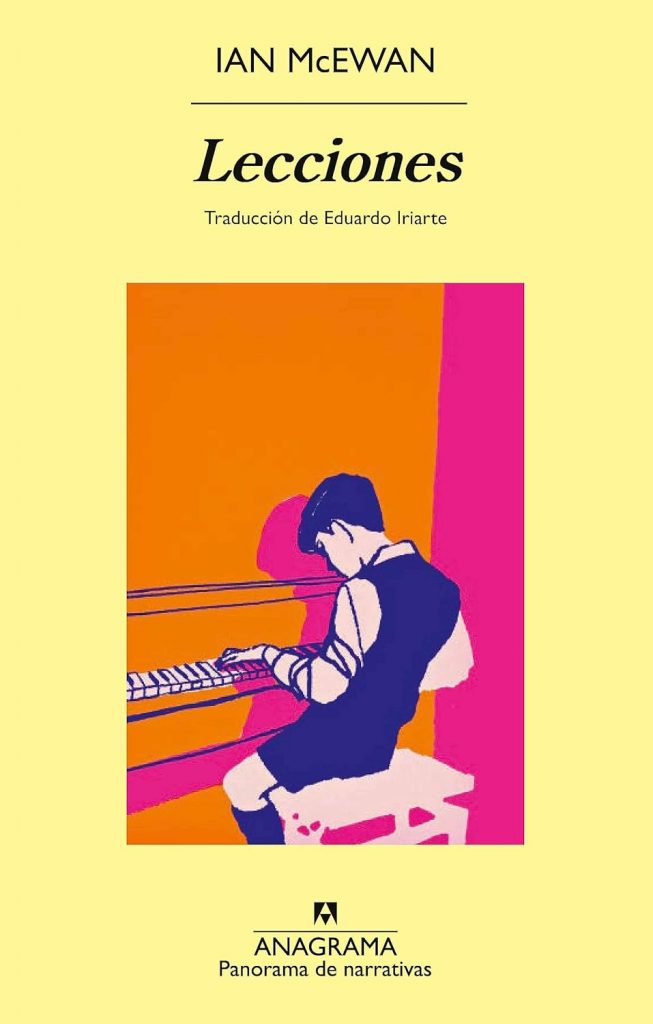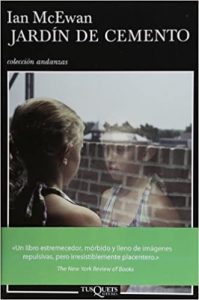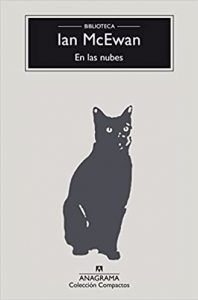One of the most recognized English writers today is Ian McEwan. His novelistic production (he has also stood out as a screenwriter or playwright) offers us a leisurely perspective of the soul, with its contradictions and its variable phases. Stories about childhood or love, but on many occasions with a point of distortion that ends up trapping the reader in its eccentricity, in its presentation of the strange, in its vindication of the abnormal as part of who we are beyond appearances and conventions.
Since Ian McEwan published his first book of short stories back in 1975, the taste for this nuanced literature has accompanied him at all times, finally composing a library that already has around twenty books.
In addition, he has also lavished on children's narrative proposals, with that ambivalent reading point since adolescence or youth, or to discover new nuances in adulthood, always transmitting an interesting trace of humanity.
Top 3 Recommended Novels by Ian McEwan
The cockroach
The beginning of the novel will not leave any reader indifferent, because it is a re-elaboration of the very famous beginning of Kafka's Metamorphosis. Only here the terms are inverted and we find a cockroach that one day, when he wakes up, discovers that he has become an enormous human being, specifically the Prime Minister of the United Kingdom, named Jim Sams. And it turns out that he is not the only cockroach transformed into a politician who moves through the upper echelons.
The prime minister invokes the people to place himself above everything and everyone: the opposition, dissidents from his own party and even Parliament and the most elementary rules of democracy. His flagship plan is to put into practice an absurd economic theory called "reversionism", whose brilliant idea is to change the direction of the flow of money, so that one must pay to work and in turn receive money to buy. A magic formula that is supposed to solve all problems ...
McEwan turns to Kafka to portray a reality that already has a lot of Kafkaesque in itself, but the great reference behind his fierce satire is Jonathan Swift, one of the masters in the art of using humor to highlight stupidity and fight it. Out of perplexity and outrage, McEwan has written a concise, forceful, and outrageous emergency book that denounces the alarming degradation of the political class and the dangers that this entails.
Amsterdam
The grieving lovers of Molly Lane are summoned to the death of the liberated woman. They are four men who loved her at different times in her life.
From the crazy sixties in which her libertine youth gave rise to a three-way relationship between the deceased with Clive a budding musician and Vernon the talkative young man who would end up running a newspaper, through her marriage to George Lane, one of the types richest in the country until he ends up in Julian Garmony, a recalcitrant right-hander who does not quite fit into the ideology of the first two lovers of youth.
Until George Lane sets it all up ... What Molly's husband transfers to Vernon as a journalist is a real bombshell. Garmony, under his appearance as a respectable gentleman of the most conservative right, seemed to share with Molly erotic games that now, seen in a snapshot, transform everything into a bomb ...
Lessons
The eyes of the character, especially if he is a child, faced with the changes, the instabilities and mutations of the world subjected to the vagaries of human ambition, almost never kind, almost always blind. This is how children unlearn about theoretical values. The contradiction of the lessons to be learned to be a useful person... Even more so when one is left alone before their time and has to make decisions that are clearly inappropriate but always masterful to make existence a fascinating unstable balance between the child and the adult.
As a child, Roland Baines' parents sent him to boarding school. There, far from family protection, he took piano lessons with a young teacher named Miriam Cornell, with whom he had a fascinating and traumatic experience in equal parts, which would mark his life forever. The years, however, have passed: Roland has traveled, lived in different places, gotten married and had a child. But when his wife, Alissa Eberhardt, leaves him without any explanation, the foundations of his reality shake, and he is forced to reconstruct all of his memories to try to understand what happened.
Since his childhood in Tripoli, where his military father was stationed before the family returned to England, Roland's life is marked by the great events of the last seventy years: the Suez crisis, the Cuban missiles, the fall of the Berlin Wall, Chernobyl, Brexit, the pandemic...
A product of his time, a child of the post-war period, his existence runs parallel to the upheavals of the second half of the XNUMXth century and the beginning of the XNUMXst. First son, then lover, husband, father and grandfather, Baines jumps from one job to another, knows sex, drugs, friendship and failure. And while he questions the direction his life has been taking, what happened with the teacher continues to haunt him.
Ian McEwan has written his longest and perhaps his most ambitious novel, in the wake of Atonement and other works marked by history and its mutations such as Chesil Beach or Operation Sweet. Lessons is a winding narrative about a character trying to make sense of his life in a changing and disconcerting world.
Other recommended books by Ian McEwan
The Cement Garden
If there is a moment in which the human needs a paternal or maternal authority that is adolescence. I mean not so much the most basic subsistence that any adult can provide.
Rather, it is about anchoring that dispersion typical of the transition to adulthood, since otherwise it can happen as with the children who star in this story. With the father dead and with the mother prostrated by a chronic illness, we observe how the boys adjust their new world to the whim of their occurrences.
The narrator, who is none other than one of the kids, explains to us with the ease of one who finds no limits, his particular awakening to a world without horizon for all of them.
Although in a certain way, the idea of the dependence of the human being can also be detached, unable to fend for himself with his powerful reason, without succumbing to the very traps that intelligence grants us.
En las nubes
One of those double-reading books that I referred to earlier. A kind of retrospective of the adult on his particular childhood paradise.
We get into the shoes of Peter Fortune, who begins with his story from the age of 10, a time in which his overflowing imagination led him through the most crazy adventures, giving us that fantasy perspective of any of our childhoods, until the moment arrives. of the special metamorphosis towards adulthood, narrated as some confusing steps towards the discovery of the first love ...

